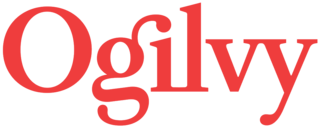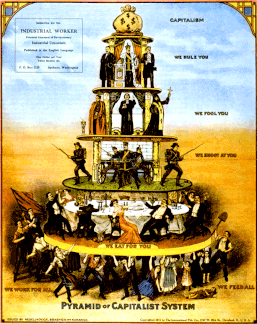Public relations (PR) is the practice of deliberately managing the spread of information between an individual or an organization and the public. Public relations may include an organization or individual gaining exposure to their audiences using topics of public interest and news items that do not require direct payment. This differentiates it from advertising as a form of marketing communications. Public relations is the idea of creating coverage for clients for free, rather than marketing or advertising. But now, advertising is also a part of greater PR Activities. An example of good public relations would be generating an article featuring a client, rather than paying for the client to be advertised next to the article. The aim of public relations is to inform the public, prospective customers, investors, partners, employees, and other stakeholders and ultimately persuade them to maintain a positive or favorable view about the organization, its leadership, products, or political decisions. Public relations professionals typically work for PR and marketing firms, businesses and companies, government, and public officials as PIOs and nongovernmental organizations, and nonprofit organizations. Jobs central to public relations include account coordinator, account executive, account supervisor, and media relations manager.

Persuasion is an umbrella term of influence. Persuasion can attempt to influence a person's beliefs, attitudes, intentions, motivations, or behaviors. In business, persuasion is a process aimed at changing a person's attitude or behavior toward some event, idea, object, or other person(s), by using written, spoken words or visual tools to convey information, feelings, or reasoning, or a combination thereof. Persuasion is also an often used tool in the pursuit of personal gain, such as election campaigning, giving a sales pitch, or in trial advocacy. Persuasion can also be interpreted as using one's personal or positional resources to change people's behaviors or attitudes. Systematic persuasion is the process through which attitudes or beliefs are leveraged by appeals to logic and reason. Heuristic persuasion on the other hand is the process through which attitudes or beliefs are leveraged by appeals to habit or emotion.

A television advertisement is a span of television programming produced and paid for by an organization. It conveys a message, aimed to market a product or service. Advertisers and marketeers may refer to television commercials as TVCs.
Media manipulation is a series of related techniques in which partisans create an image or argument that favours their particular interests. Such tactics may include the use of logical fallacies, psychological manipulations, outright deception, rhetorical and propaganda techniques, and often involve the suppression of information or points of view by crowding them out, by inducing other people or groups of people to stop listening to certain arguments, or by simply diverting attention elsewhere. In Propaganda: The Formation of Men's Attitudes, Jacques Ellul writes that public opinion can only express itself through channels which are provided by the mass media of communication – without which there could be no propaganda. It is used within public relations, propaganda, marketing, etc. While the objective for each context is quite different, the broad techniques are often similar.
A public service announcement (PSA) is a message in the public interest disseminated without charge, with the objective of raising awareness of, and changing public attitudes and behavior towards, a social issue. In the UK, they are generally called 'public information films' (PIFs); in Hong Kong, they are known as 'announcements in the public interest' ('APIs').
Negative campaigning or mudslinging is the process of deliberate spreading negative information about someone or something to worsen the public image of the described.

Google Ads is an online advertising platform developed by Google, where advertisers pay to display brief advertisements, service offerings, product listings, video content, and generate mobile application installs within the Google ad network to web users.

Elections in the United States are held for government officials at the federal, state, and local levels. At the federal level, the nation's head of state, the President, is elected indirectly by the people of each state, through an Electoral College. Today, these electors almost always vote with the popular vote of their state. All members of the federal legislature, the Congress, are directly elected by the people of each state. There are many elected offices at state level, each state having at least an elective Governor and legislature. There are also elected offices at the local level, in counties, cities, towns, townships, boroughs, and villages. According to a study by political scientist Jennifer Lawless, there were 519,682 elected officials in the United States as of 2012.
The "Stand By Your Ad" provision (SBYA) of the Bipartisan Campaign Reform Act, enacted in 2002, requires candidates in the United States for federal political office, as well as interest groups and political parties supporting or opposing a candidate, to include in political advertisements on television and radio "a statement by the candidate that identifies the candidate and states that the candidate has approved the communication". The provision was intended to force political candidates running any campaign for office in the United States to associate themselves with their television and radio advertising, thereby discouraging them from making controversial claims or attack ads.
Cost per acquisition (CPA), also known as cost per action, pay per acquisition (PPA) and cost per conversion (CPC), is an online advertising pricing model where the advertiser pays for a specified acquisition – for example a sale, click, or form submit

Ogilvy is a New York City-based British advertising, marketing, and public relations agency. It was founded in 1850 by Edmund Mather as a London-based agency. In 1964, the firm became known as Ogilvy & Mather after merging with a New York City agency that was founded in 1948 by David Ogilvy. The agency is known for its work with Dove, American Express, and IBM. It is now part of the WPP Group, one of the largest advertising and public relations companies in the world. The company provides services in six areas: brand strategy, advertising, customer engagement and commerce, public relations and influence, digital transformation, and partnerships. The company's strategy division OgilvyRED became Ogilvy Consulting.

In politics, campaign advertising is the use of an advertising campaign through the media to influence a political debate, and ultimately, voters. These ads are designed by political consultants and political campaign staff. Many countries restrict the use of broadcast media to broadcast political messaging. In the European Union, many countries do not permit paid-for TV or radio advertising for fear that wealthy groups will gain control of airtime, making fair play impossible and distorting the political debate in the process.

General elections in Singapore must be held within three months after five years have elapsed from the date of the first sitting of a particular Parliament of Singapore. However, in most cases Parliament is dissolved and a general election called at the behest of the Prime Minister before the five-year period elapses. The number of constituencies or electoral divisions is not permanently fixed by law, but is declared by the Prime Minister prior to each general election pursuant to the Parliamentary Elections Act, which governs the conduct of elections to Parliament, taking into account recommendations of the Electoral Boundaries Review Committee. For the 2015 general election, there were 89 seats in Parliament organised into 13 Single Member Constituencies (SMCs) and 16 Group Representation Constituencies (GRCs). Each SMC returns one Member of Parliament while each GRC returns between three and six MPs, at least one of whom must be from the Malay, Indian or other minority communities. A group of persons wishing to stand for election in a GRC must all be members of the same political party, or a group of independent candidates. The voting age in Singapore is 21 years.
Digital marketing is the marketing of products or services using digital technologies, mainly on the Internet, but also including mobile phones, display advertising, and any other digital medium.

Common media for transmitting propaganda messages include news reports, government reports, historical revision, junk science, books, leaflets, movies, social media, radio, television, and posters. Less common nowadays are the cow post envelopes, examples of which have survived from the time of the American Civil War. In the case of radio and television, propaganda can exist on news, current-affairs or talk-show segments, as advertising or public-service announcement "spots" or as long-running advertorials. Propaganda campaigns often follow a strategic transmission pattern to indoctrinate the target group. This may begin with a simple transmission such as a leaflet dropped from a plane or an advertisement. Generally these messages will contain directions on how to obtain more information, via a web site, hot line, radio program, etc. The strategy intends to initiate the individual from information recipient to information seeker through reinforcement, and then from information seeker to opinion leader through indoctrination.

A newspaper is a periodical publication containing written information about current events and is often typed in black ink with a white or gray background.
"Project Alamo" was a database of voter information created for Donald Trump's 2016 presidential campaign and an associated fundraising and political advertising operation on social media platforms. It was organized by the Giles-Parscale firm in San Antonio, Texas. The campaign paid Giles-Parscale as much as $94 million for fundraising, political advertising, and digital media services, including the creation of Trump's web site. A new database of voter information named "Project Alamo" was at the heart of Giles-Parscale's efforts, allowing highly targeted advertising on social media platforms. The advertising campaigns added to the database over time, driving more effective targeting. The scale of the fundraising and political advertising campaigns on social media was massive, with hundreds of thousands of targeted ads being delivered daily. Project Alamo has been credited as an important factor in Trump's 2016 victory.
Idka AB is a collaborative social networking platform headquartered in Sweden. Idka allows you to connect, share, store and share documents and files, while keeping your data completely safe. Idka is advertising-free, and fully encrypted. The solution combines all of the functionality of social media in one place, and will never share or sell information. The user controls the sharing.












